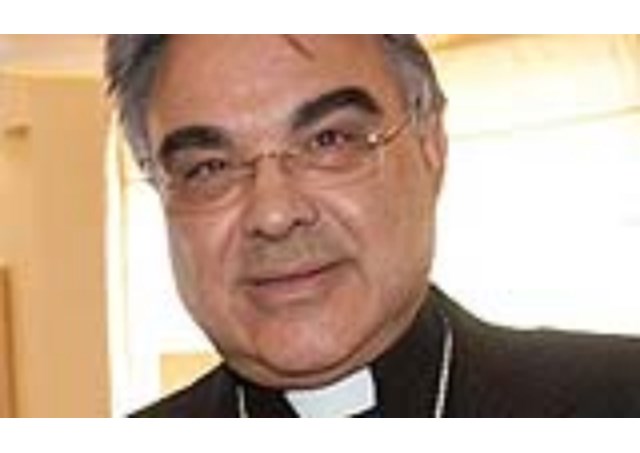
Pope Francis and the C9: Interview with Council Secretary

(Vatican Radio) The Council of Cardinal Advisors – the so-called C-9 – is holding its 29th Reunion this week, with meetings set to take place in the Vatican from 11-13 September. The Council, established by Pope Francis on 28 September 2013, was created to assist the Holy Father in the governance of the universal Church, and to study the project of revision of the Apostolic Constitution Pastor Bonus, which regulates the Roman Curia.
The group consists of nine Cardinals from the Vatican and around the world, as well as a Secretary, Bishop Marcello Semeraro. In an exclusive interview with Vatican Radio’s Alessandro Gisotti, Bishop Semeraro spoke about the work of the C-9, how Pope Francis participates in the group’s activities, and the next phase of the ongoing reform of the Curia.
WORK OF THE COUNCIL
Bishop Semeraro described the work of the Council of Cardinals with three key words: listening, reflecting, and verifying. The Council, he said, listens to the contributions of the Church; reflects on those contributions, and looks into the details of them, considering the best way of going forward. It then makes proposals to the Pope; as Bishop Semeraro explained, the Council has a consultative, rather than a deliberative role.
The Council, he said, is a synodal structure, and in this sense the Cardinals are able to serve both the Pope and the local Churches. Pope Francis chose them precisely in order that they might be, “in some sense ‘sensitive antennae’ that are capable of capturing, somehow, the instances of the local Churches over a broad range.” As such, it is an organism that is situated within the context of episcopal collegiality.
POPE FRANCIS' PARTICIPATION
The Pope himself takes part in the Council’s work, habitually being present in the meetings of the Cardinals. Bishop Semeraro said the Pope is present above all through listening, although he does intervene, “with great discretion,” when there is need of clarifying some point, or presenting his own experiences or calling attention to certain realities within the Church. The Bishop emphasized that the reform of the Curia is only one aspect of the Council’s work; it’s principle duty is to collaborate with the Pope, and to give him advice or share their opinions “when [the Pope] considers it necessary to make this consultation.” He gave the example “the sorrowful reality which is the abuse of minors” which the Council has brought to the Pope’s attention. “This, of itself, is not part of the reform of the Roman Curia,” he said, “and yet the Pope decided to listen to the Council” even with regard to this issue.
PROGRESS OF REFORM
Asked about the progress of the reform, Bishop Semeraro said the reform is more than three quarters done, at least with regard to the work of the Cardinals. That is, he said, it is almost to the point where the Cardinals are able to present their proposals to the Holy Father. “I think that within a few months this revision will be more or less complete,” he said, and “then the Pope will have at his disposition the proposals that regard all the Dicasteries and I would expect him to decide how and when to actuate them.” He noted that Pope Francis has preferred, up to this point, a more gradual reform, with a kind of “breaking-in” period, which allows for corrections that are inevitably called for as the reform moves from theory to practical reality.
| All the contents on this site are copyrighted ©. |


